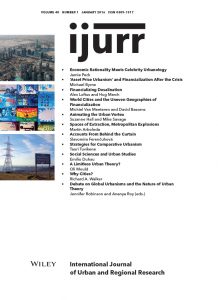Recent assertions of urban theory have dismissed the value of postcolonial critique in urban studies. This essay draws on postcolonial theory to demonstrate key flaws in such theoretical formulations. In doing so, it returns to the puzzle of how and why studying urbanism in the global South might matter for the reconceptualization of critical urban theory. Instead of a universal grammar of cityness, modified by (exotic) empirical variation, the essay foregrounds forms of theorization that are attentive to historical difference as a fundamental constituent of global urbanization. What is at stake, the essay concludes, is a culture of theory, one that in its Eurocentrism tends to foreclose multiple concepts of the urban and alternative understandings of political economy. A concern with the relationship between place, knowledge and power—a key insight of postcolonial critique—might make possible new practices of theory in urban studies.

